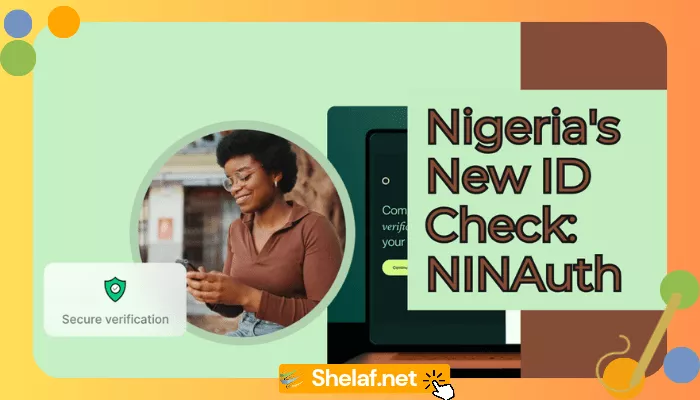Getting Ready for UTME? Watch Out for Scams
The run-up to the Unified Tertiary Matriculation Examination (UTME) can be a pressure cooker. You’re focused on studying, planning your future, and dealing with the usual exam stress. The last thing you need is a scammer trying to trip you up. That’s why a recent warning from the Joint Admissions and Matriculation Board (JAMB) about fake text messages targeting 2025 UTME candidates is so important. As someone who’s been tracking online security for years, I can tell you this kind of targeted scam needs your full attention. Let’s break down what this scam looks like, how it operates, and what you can do to stay safe.
Contents
JAMB Says: Ignore These Fake SMS Warnings
Just recently, JAMB’s spokesperson, Dr. Fabian Benjamin, made it clear: the board has nothing to do with a series of dodgy text messages making the rounds. These aren’t just annoying spam; they’re crafted specifically to exploit the worries of UTME candidates. JAMB’s message is simple—these texts are fake, designed to trick you and potentially steal from you.
How the Scam Works: Mimicking JAMB
Knowing how these fraudsters operate is your best defense. They’re trying to look legitimate by mixing numbers you might recognize:
- Number Games: They’ve grabbed ‘8863’ (a number loosely connected to ‘UTME’) and mashed it together with ‘55019,’ which is JAMB’s real short code.
- Fake Sender ID: Using SMS tricks, they might make messages look like they came from ‘JAMB-55019,’ ‘8863-Info,’ or something similar. Even if a message seems to be directly from ‘55019,’ be careful. Faking sender IDs is tricky but possible.
- The Fake Problem: The text usually claims there’s an issue with your registration—maybe “manipulations found” or “profile errors.”
- The Trap: Then, it tells you to call someone (often giving a phone number) who supposedly can “help fix” the problem. This “help” is the scam. They might ask for money to sort out the non-existent issue, try to get your login details or personal info (like NIN or bank details), or trick you into clicking a link that installs malware.
Why This Scam is Sneaky
This isn’t random phishing; it’s clever social engineering hitting you where you’re vulnerable:
- Bad Timing (for you): It pops up when you’re already stressed about exams and sensitive to any hint of trouble with your registration.
- Looks Almost Real: Using part of the actual JAMB shortcode (55019) can fool people who aren’t paying close attention.
- Panic Button: Claiming “manipulations” makes you anxious and might rush you into contacting the scammers without thinking.
Spotting the Fakes: What to Look For
You have the power to shut these scams down. Be skeptical of any unexpected message about your UTME registration. Keep an eye out for these signs:
- Weird Sender: If the sender ID isn’t exactly what JAMB uses for official communication (check their website portal for how they contact you), be suspicious. Be extra wary of combinations using 55019 and other numbers like 8863.
- Calls to Random Numbers: JAMB won’t ask you to call some stranger’s mobile number to fix major profile problems. Official steps happen through your secure JAMB portal or at accredited centers.
- Asking for Money or Secrets: Real JAMB payments happen through their site and official partners (like banks). Never give payment details, PINs, passwords, or personal info over SMS or phone calls based on a text you didn’t expect.
- Sloppy Language: Sometimes, fake messages use odd greetings (“Dear Candidate” instead of your name, maybe), have typos, or just sound off. Official messages usually sound more professional.
- Making You Panic: Texts that use threats (like “you’ll be disqualified!”) to rush you into contacting a fake helpline are a huge red flag.
What JAMB is Doing
Dr. Fabian Benjamin was very direct: “These messages are not from JAMB.” He also mentioned that security agencies know about this scam and are trying to track down the people behind it.
JAMB wants everyone—candidates and the public—to be careful. Look closely at any message you get about JAMB. If the way they contacted you, what the message says, or what it asks you to do seems fishy or doesn’t match the info on the official JAMB website (www.jamb.gov.ng), assume it’s a scam.
Got a Scam Text? Here’s What You Do
- Don’t Reply: Replying tells them your number is active and might invite more scam attempts.
- Don’t Click Links: Links could lead to fake login pages or install harmful software on your phone.
- Don’t Call Their Numbers: Calling puts you directly in touch with the scammers.
- Ignore & Delete: The best move is to simply ignore it and delete the message.
- Check Officially: Worried about your registration after getting a weird text? Go directly to the official JAMB website (www.jamb.gov.ng) yourself and log into your profile. That’s the only safe place to check your status.
- Stay Updated: Keep an eye on the official JAMB site and reliable news sources for real updates.
General Online Safety Tips for UTME Time
This scam is a good reminder to practice safe habits online:
- Protect Your Logins: Never share your JAMB portal password, email password, or NIN.
- Strong Passwords: Use tough, unique passwords for your JAMB account and email.
- Be Skeptical: Question unexpected messages, offers, or warnings asking for info, no matter if it’s SMS, email, or social media.
- Stick to Official Sources: Only use the official JAMB website and portal for information, registration, checking results, and communication.
Final Thoughts: Stay Alert, Stay Safe
Getting through the 2025 UTME takes hard work, and that includes protecting yourself from scams. This warning from JAMB about fake texts using numbers like ‘8863’ and ‘55019’ is crucial. By knowing how these scams operate, spotting the signs, and only trusting official JAMB channels, you can steer clear of trouble. Keep your focus on your exams, stay alert online, and tell other candidates about this scam too. Good luck!









